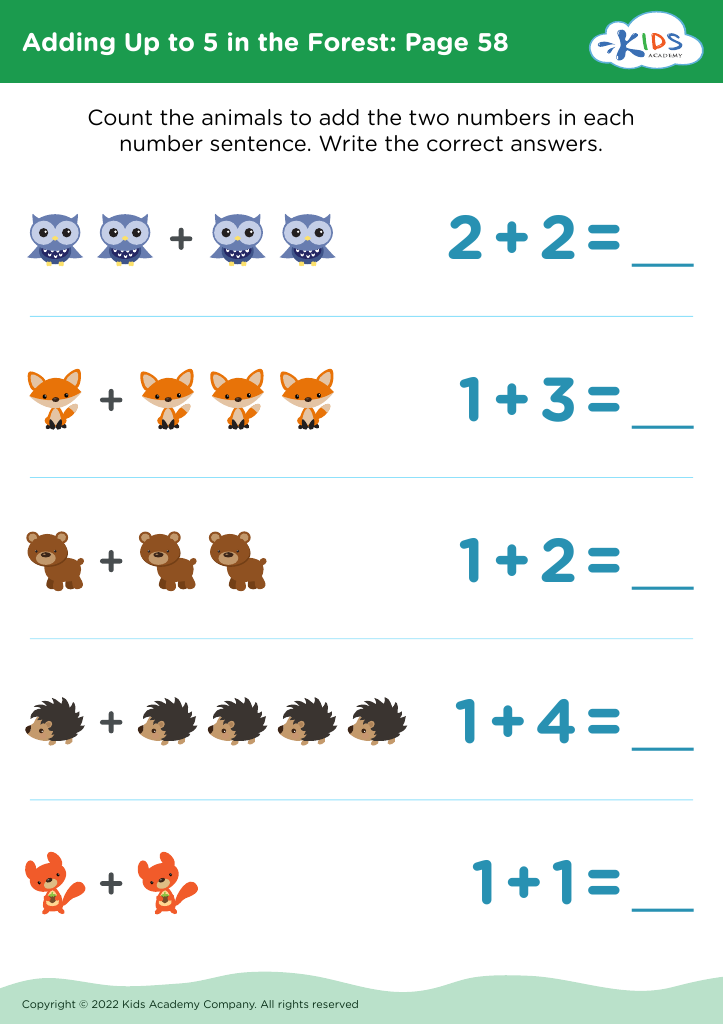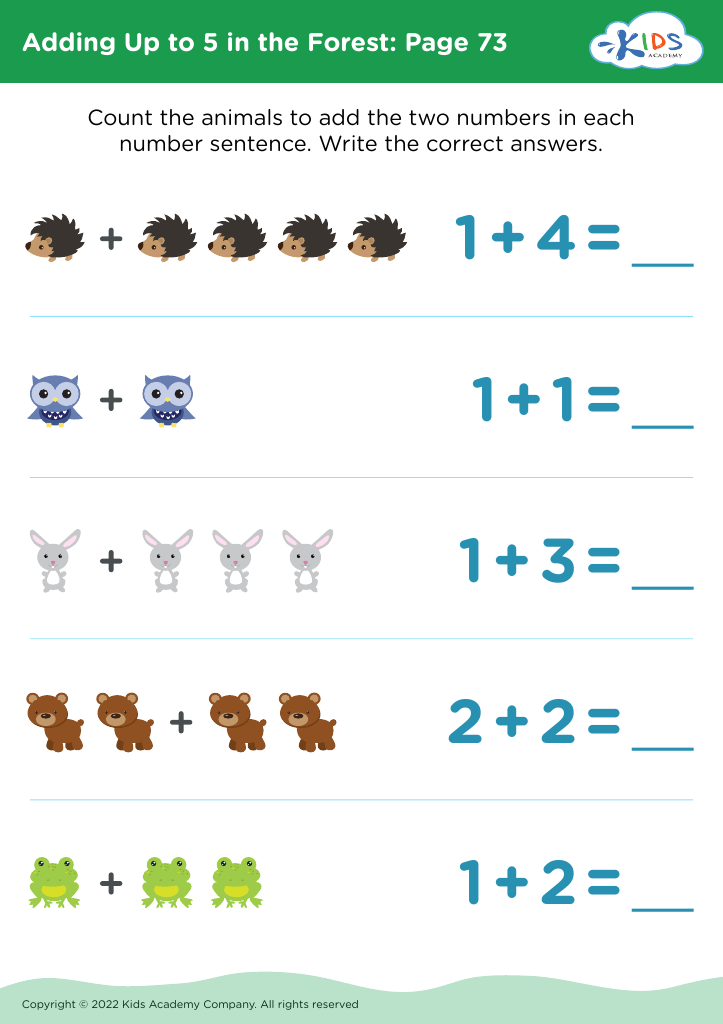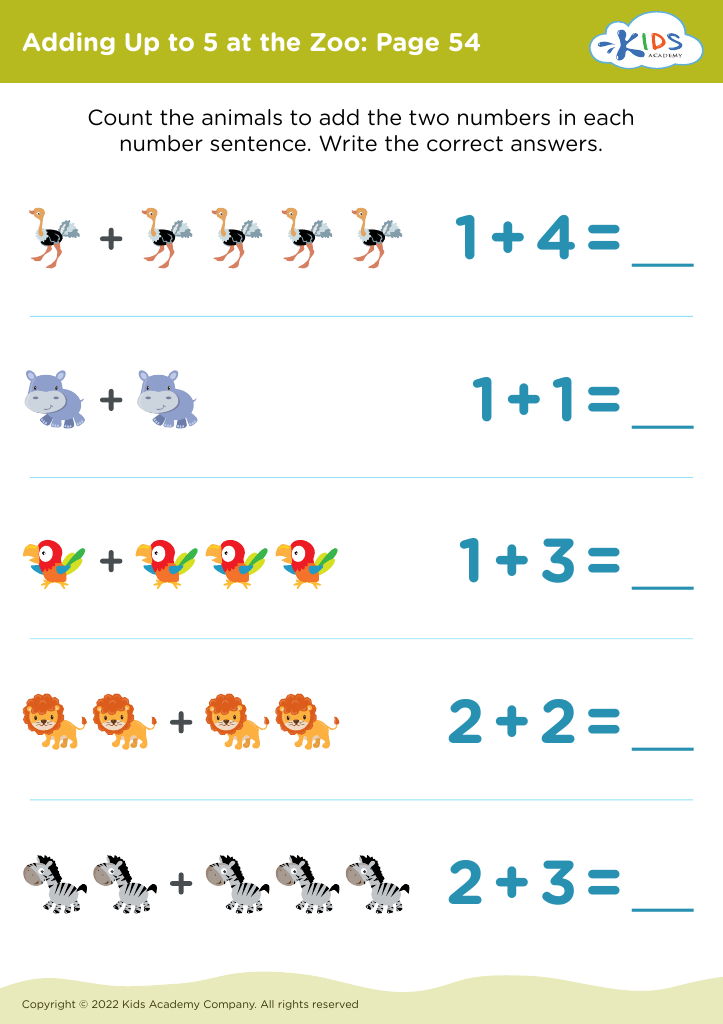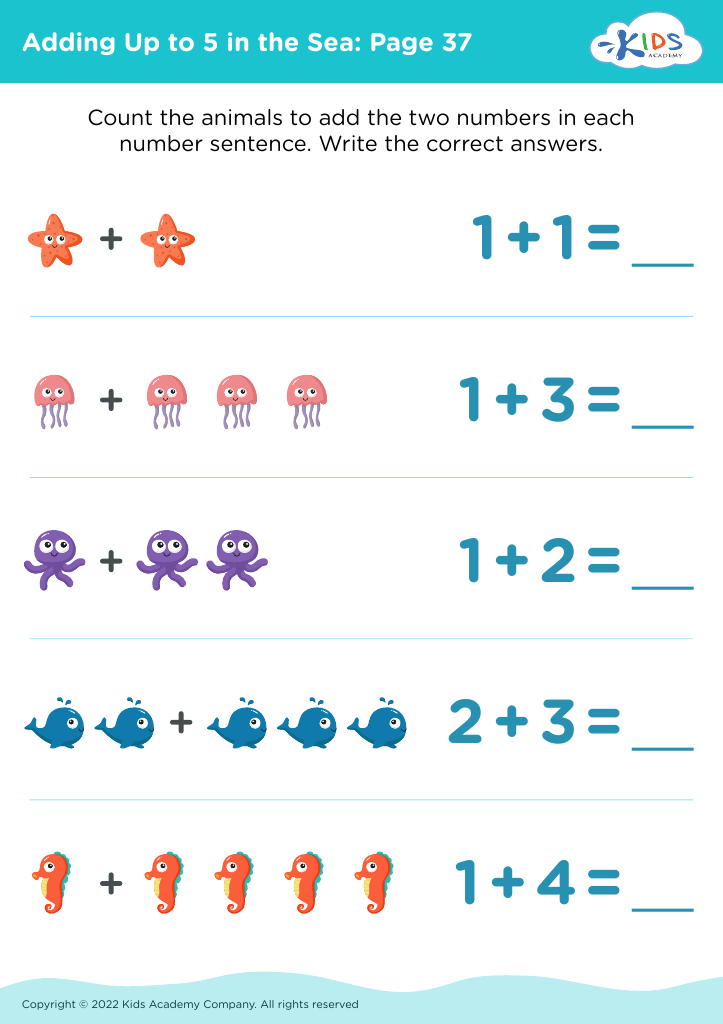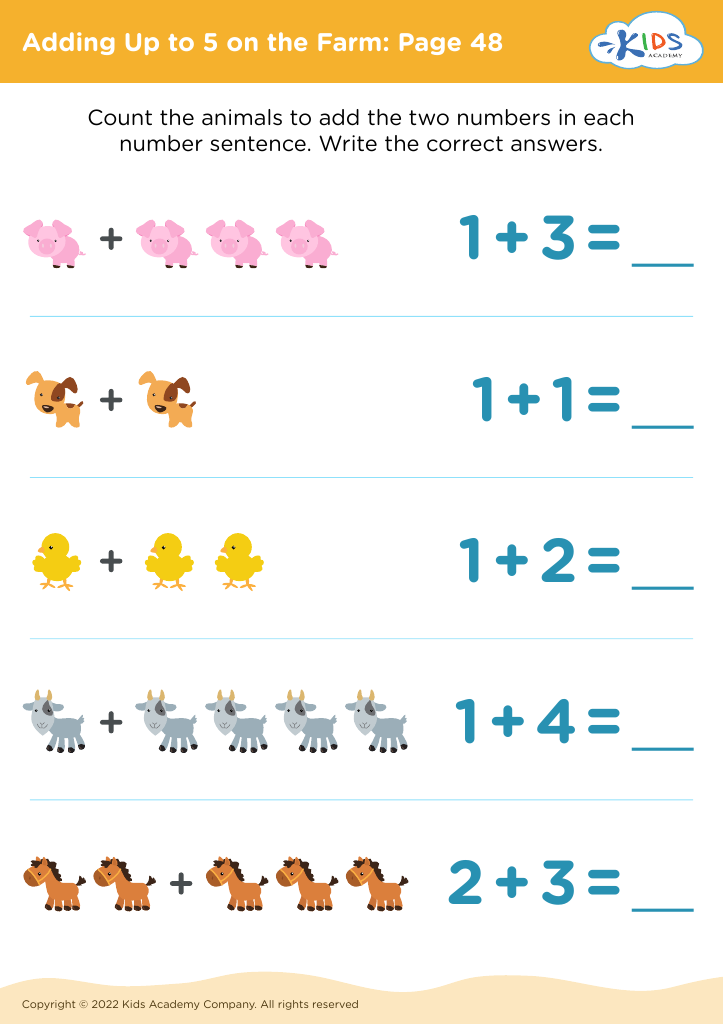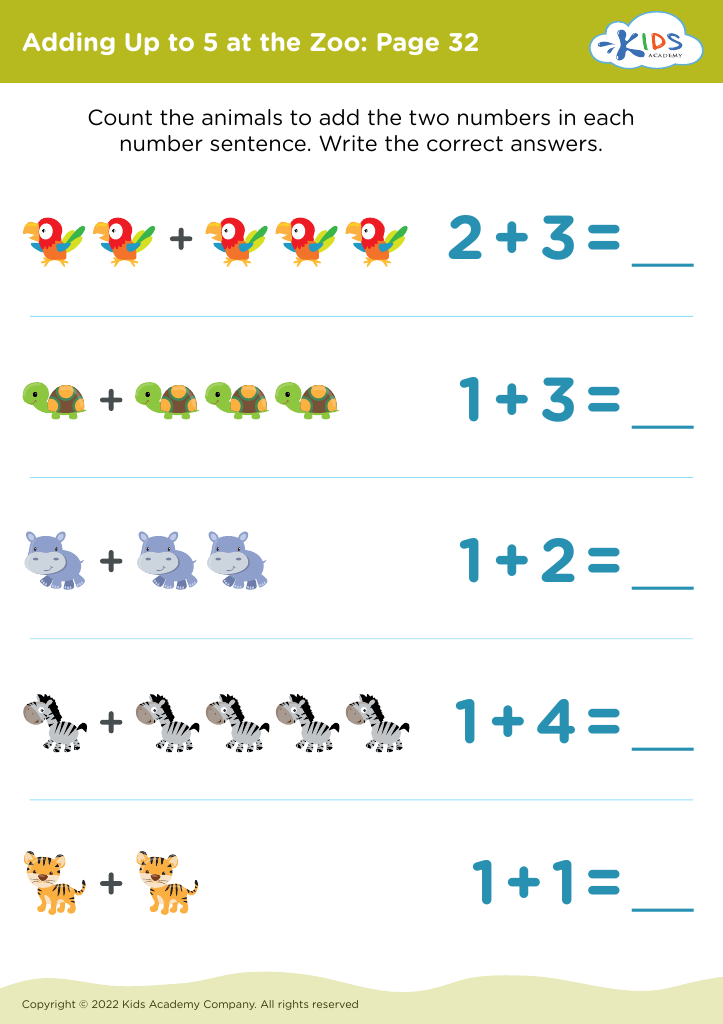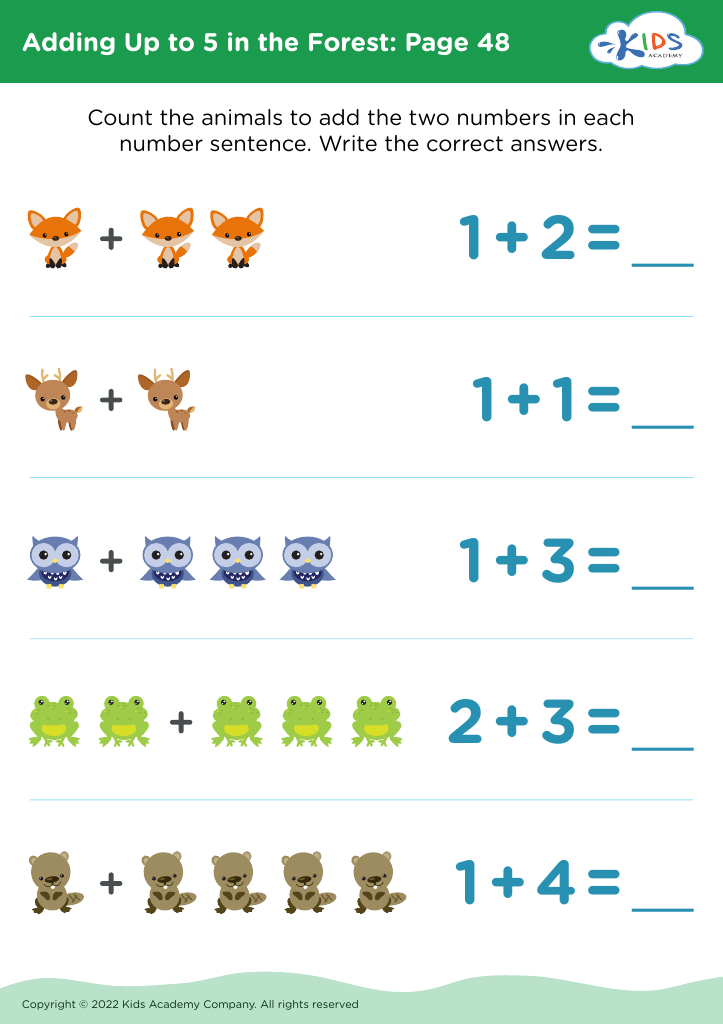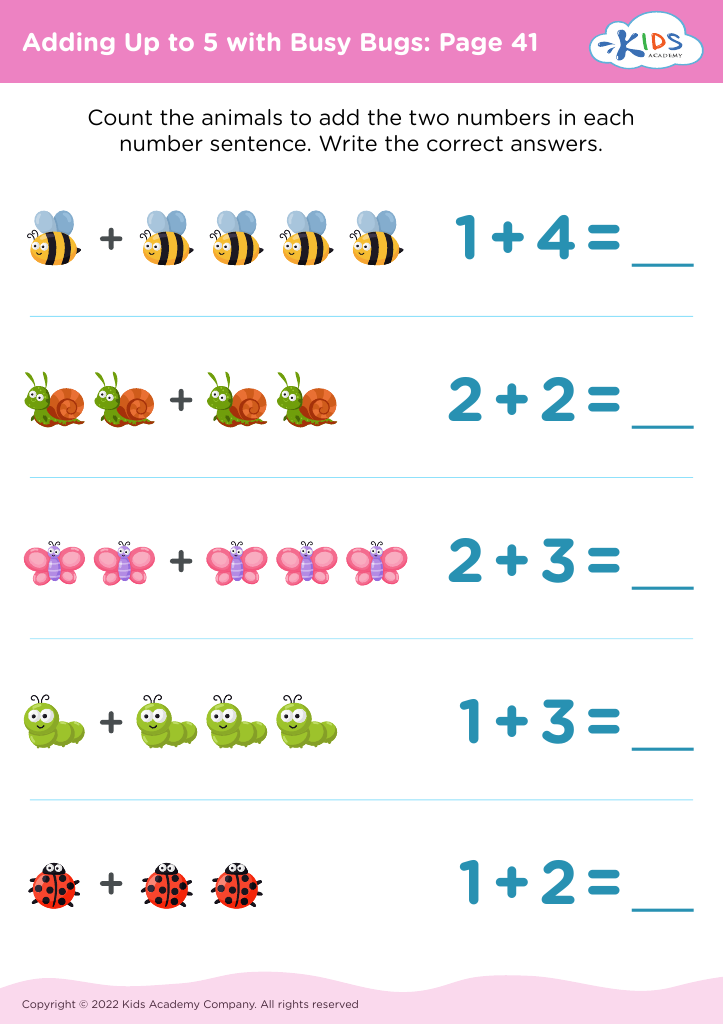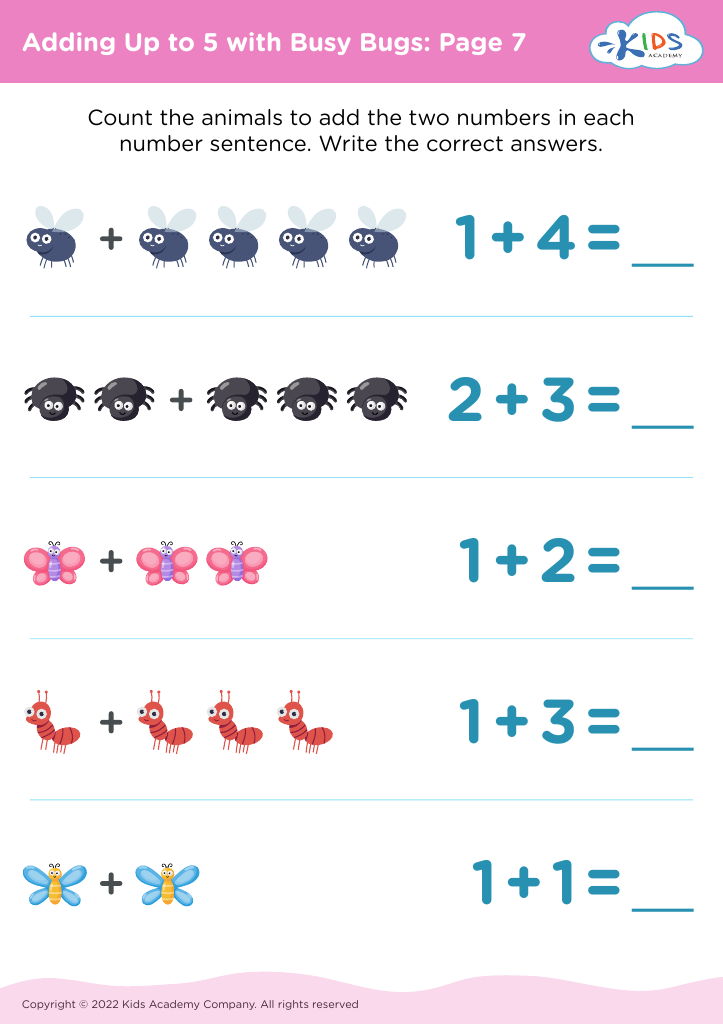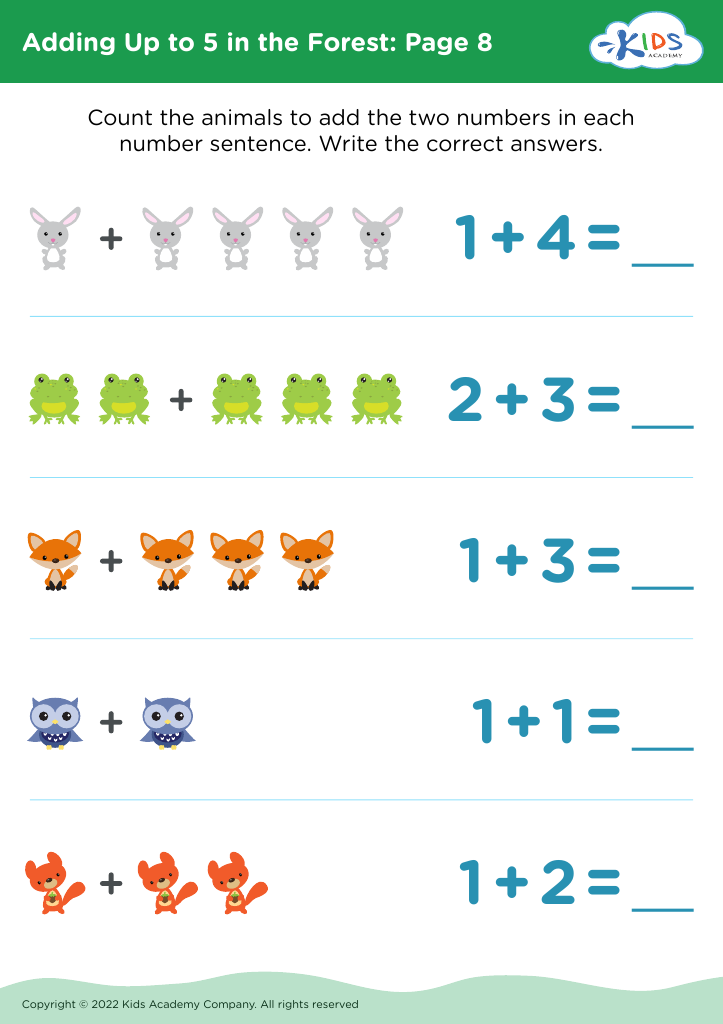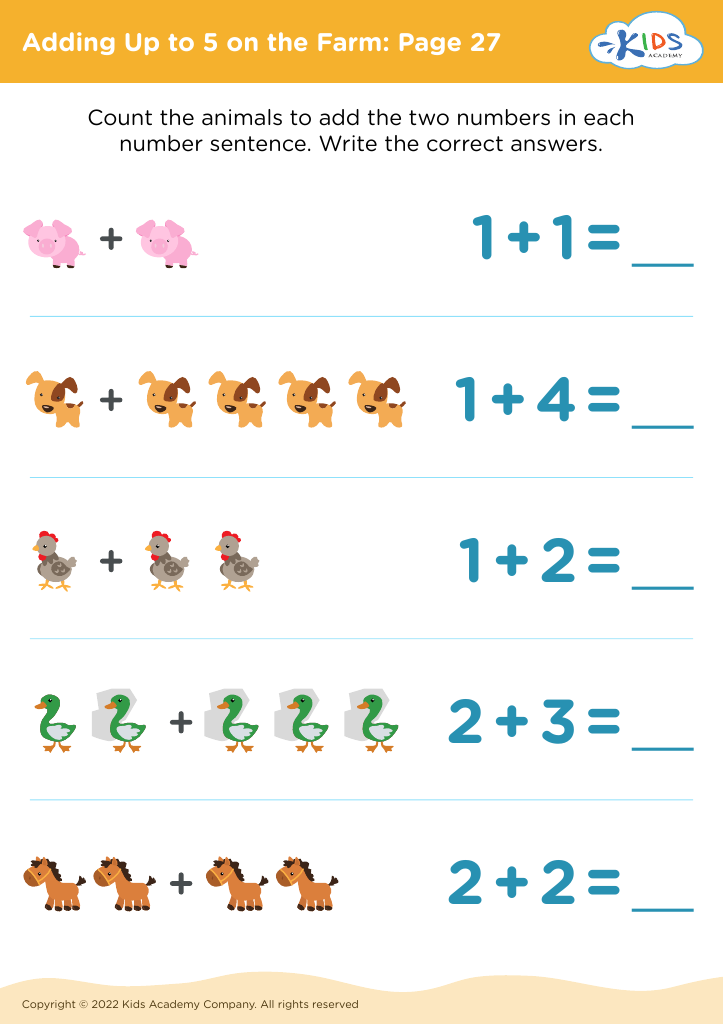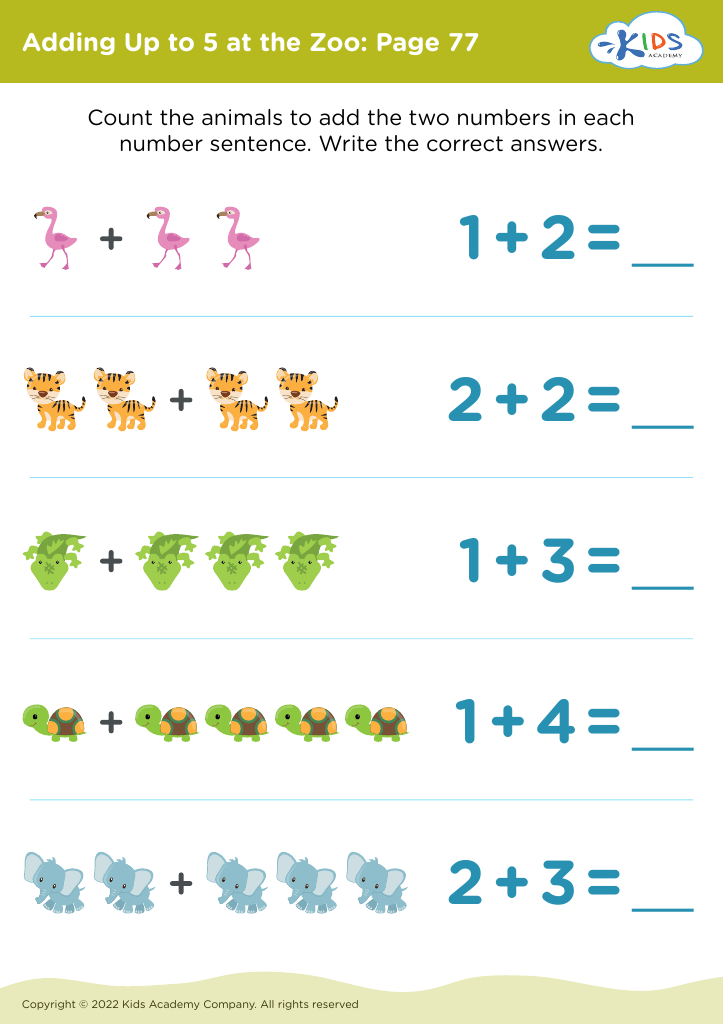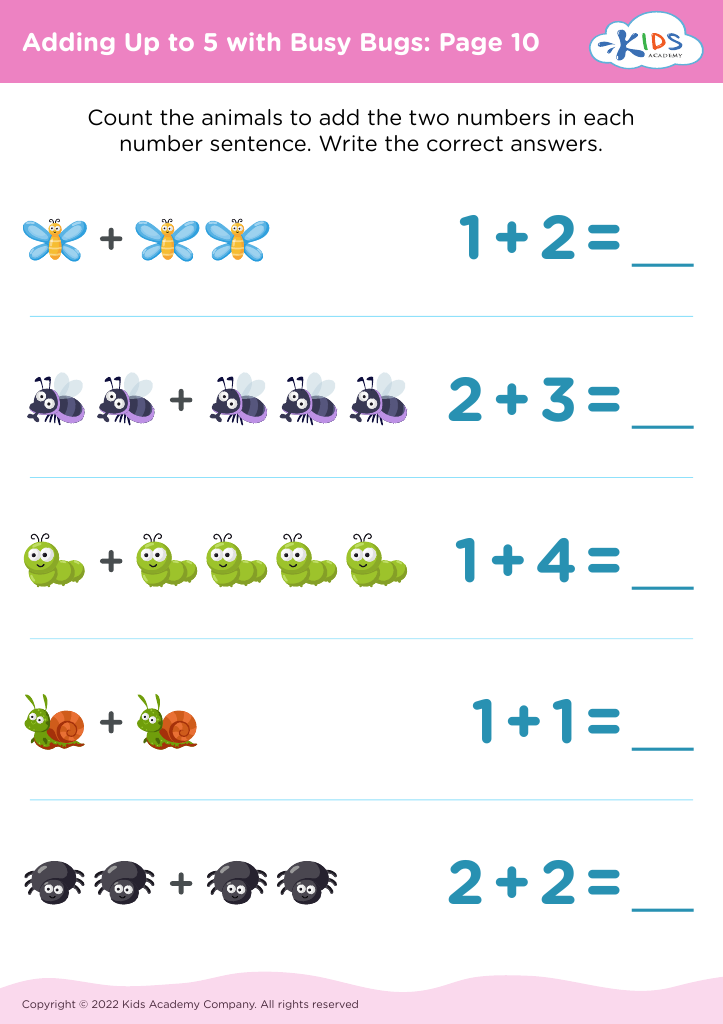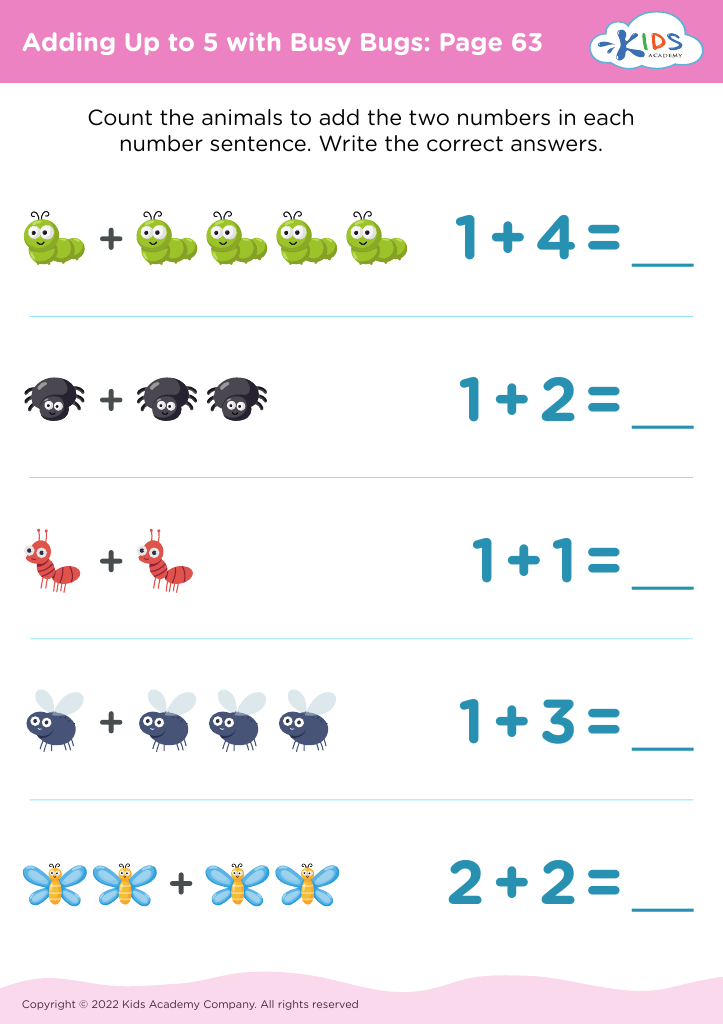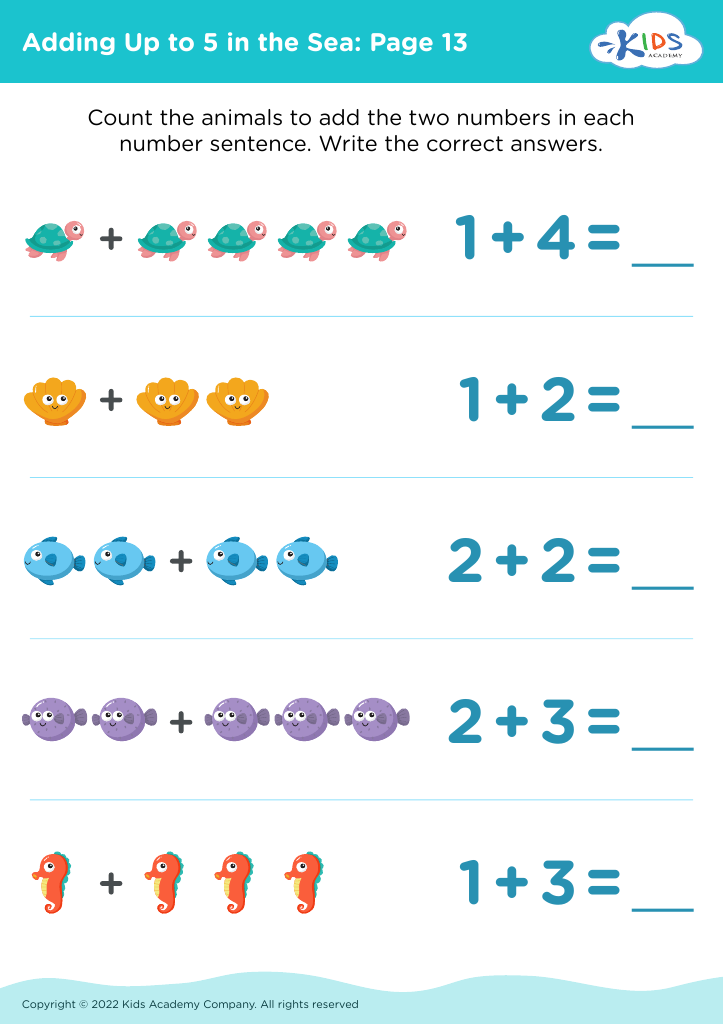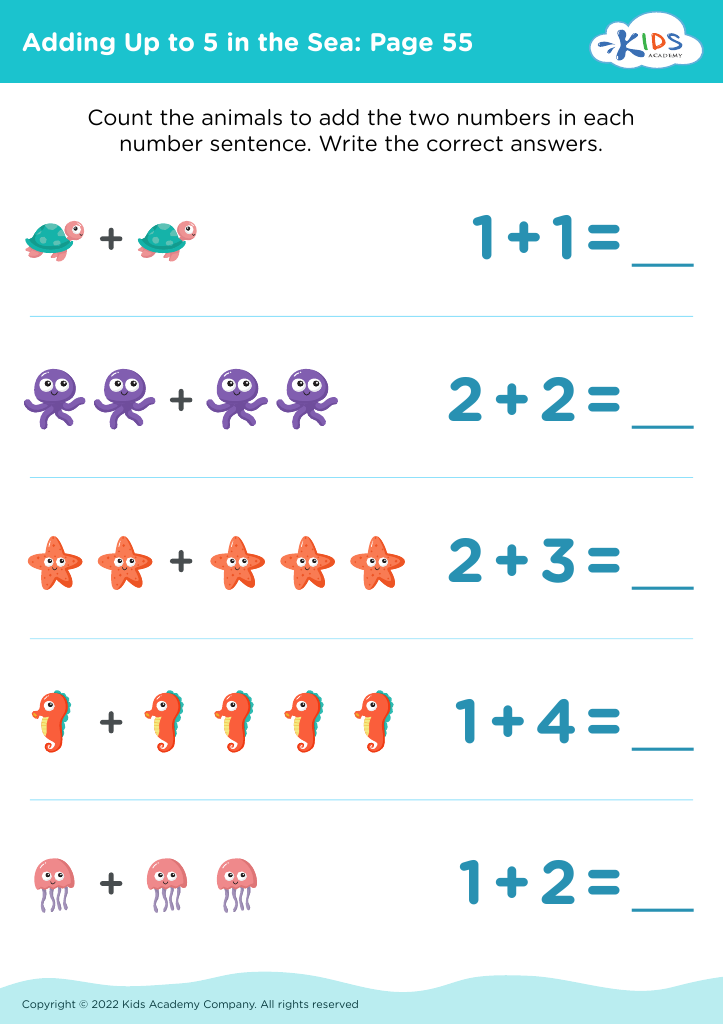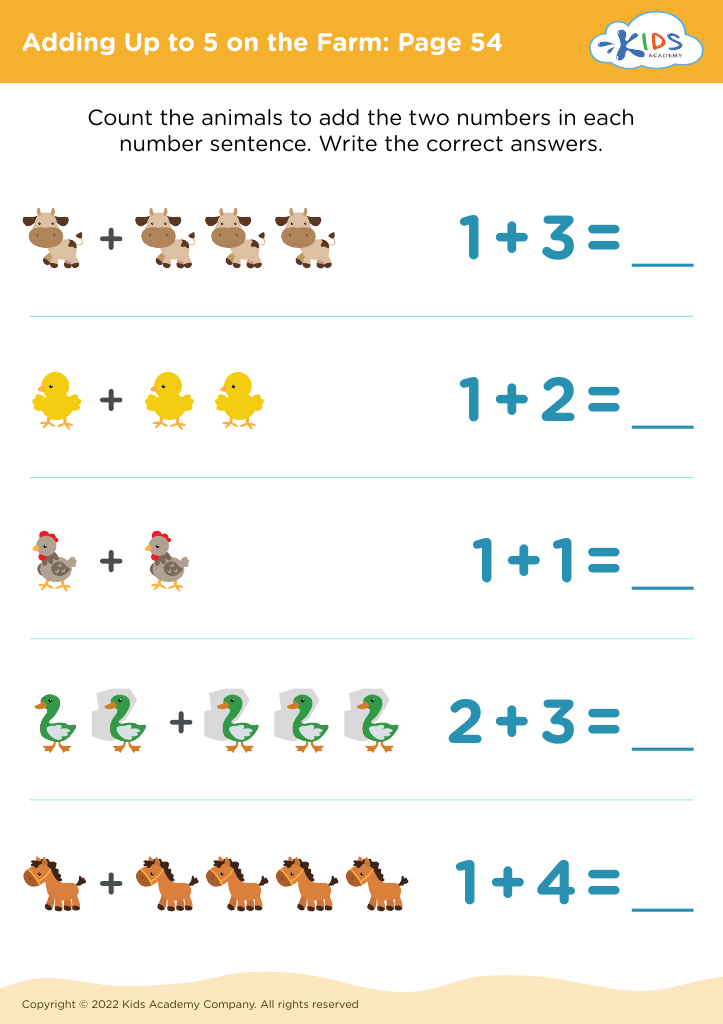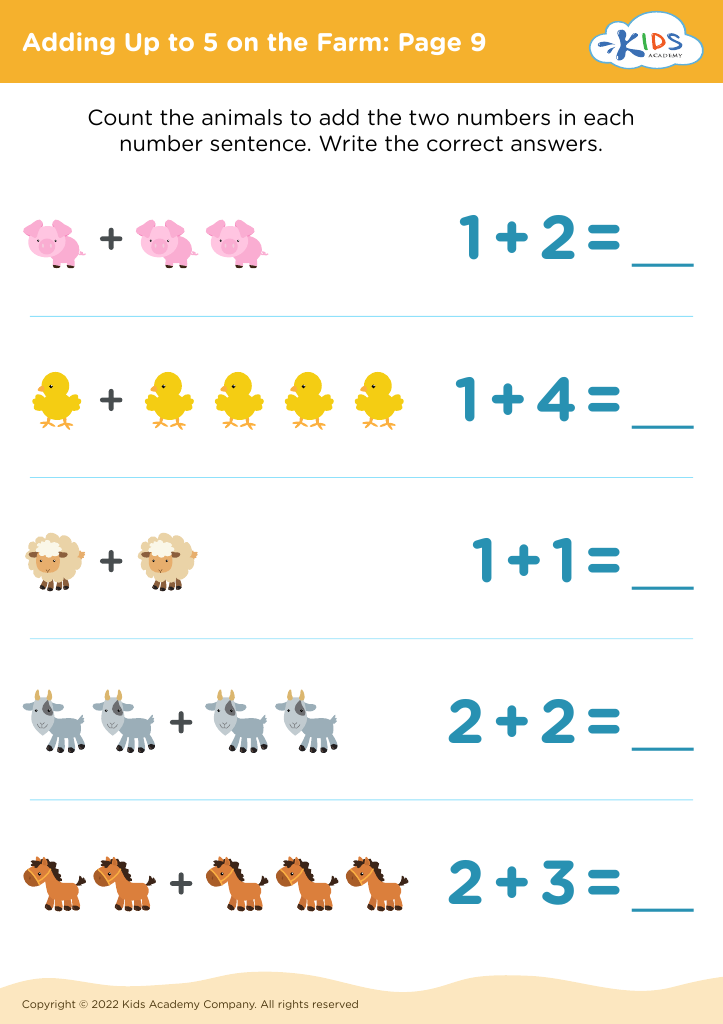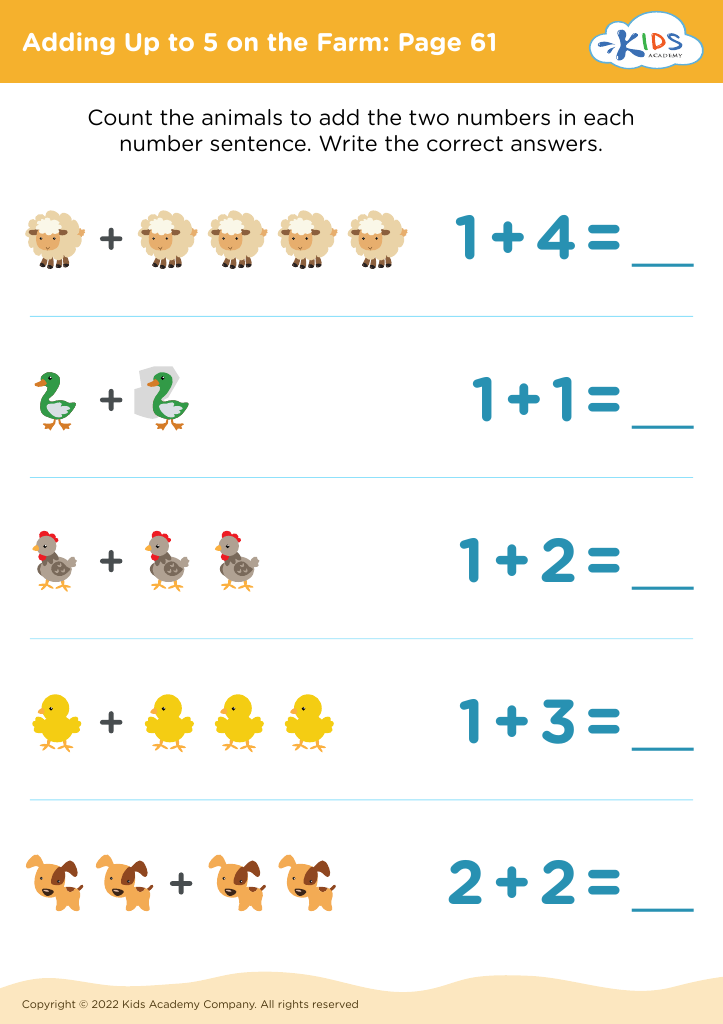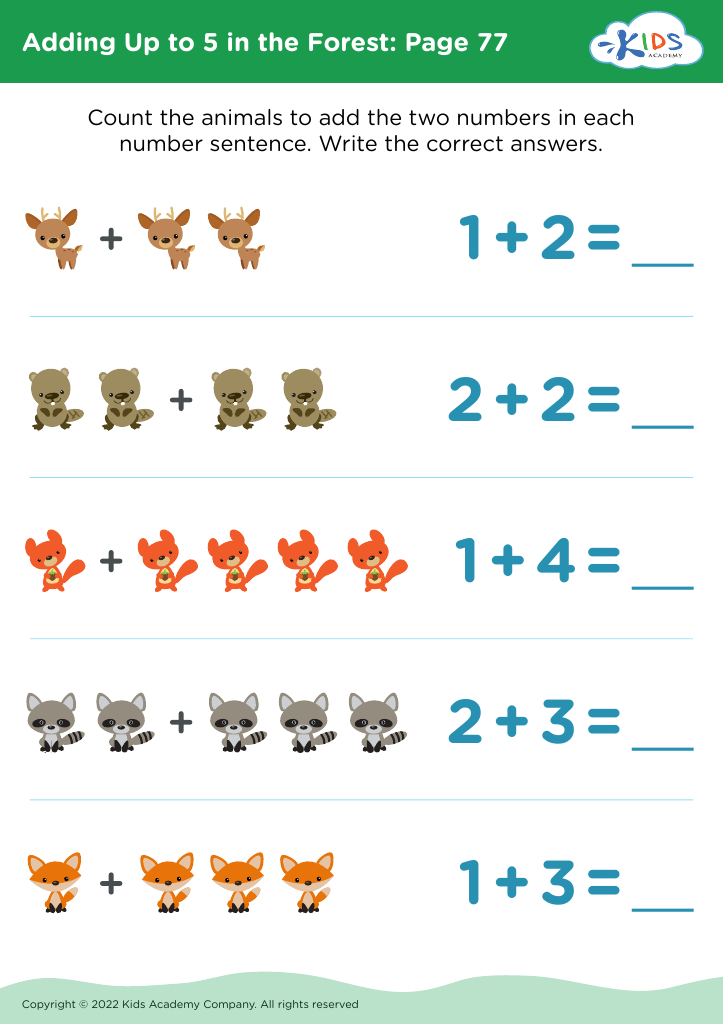Basic Addition Skills Worksheets for Ages 3-5
263 filtered results
-
From - To
Welcome to our collection of Basic Addition Skills Worksheets designed for children aged 3 to 5! These engaging and interactive worksheets are perfect for sparking a love of math in early learners. Our resources introduce fundamental addition concepts through colorful visuals and playful exercises, making learning fun and accessible. Each worksheet promotes cognitive development, hand-eye coordination, and early numeracy skills, fostering a strong mathematical foundation. Ideal for both classroom settings and home use, these worksheets encourage self-paced learning and provide young children with the confidence to explore basic arithmetic. Download our free worksheets today and help your little ones master the art of addition!
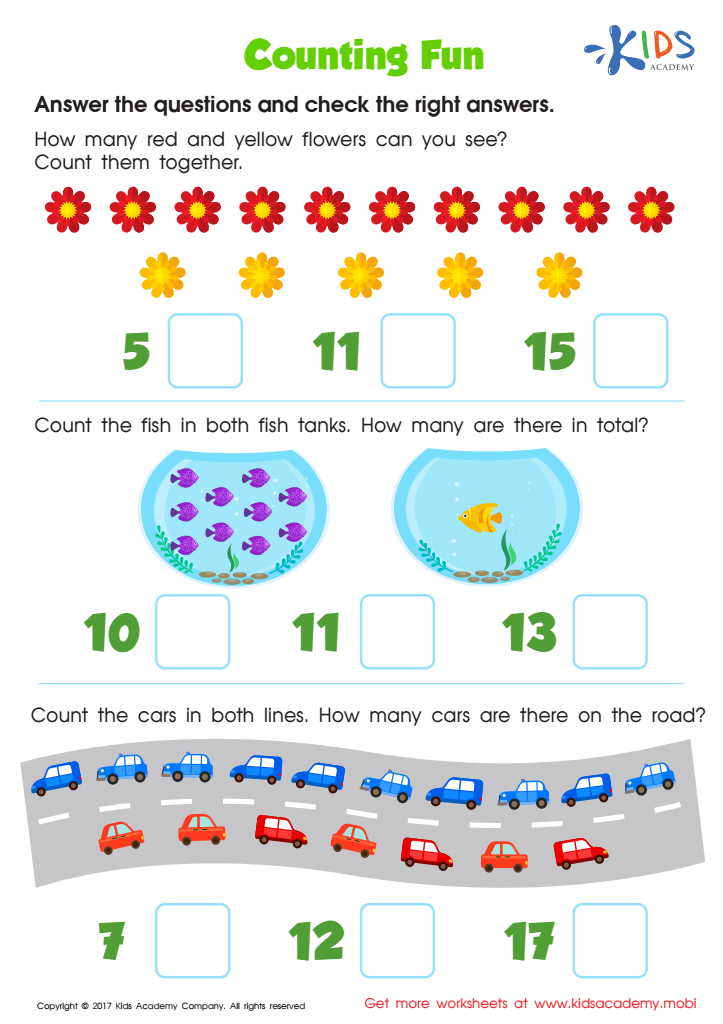

Counting Fun Worksheet


Force and Interactions: Assessment 1 Worksheet
Basic addition skills are foundational for young learners aged 3-5, and both parents and teachers should prioritize them for several reasons. First, mastering addition promotes early math literacy, setting the stage for future mathematical concepts and problem-solving. At this age, children develop cognitive skills rapidly, and engaging them in simple addition activities fosters their critical thinking and reasoning abilities.
Additionally, learning basic addition builds confidence. When young children grasp simple math concepts, they feel a sense of achievement that motivates them to explore more challenging tasks. This positive reinforcement boosts their self-esteem and creates a positive attitude towards learning.
Moreover, basic addition skills enhance a child's ability to understand everyday situations, such as sharing toys or counting snacks, making math relevant and fun in daily life. Engaging in playful and interactive activities with numbers, like using blocks or songs, enriches their social skills and promotes family bonding through shared learning experiences.
Ultimately, equipping children with these fundamental skills at an early age lays a strong educational groundwork that supports lifelong learning, critical thinking, and adaptability in an increasingly complex world. Therefore, the involvement of both parents and teachers is essential to nurturing these skills in early childhood.
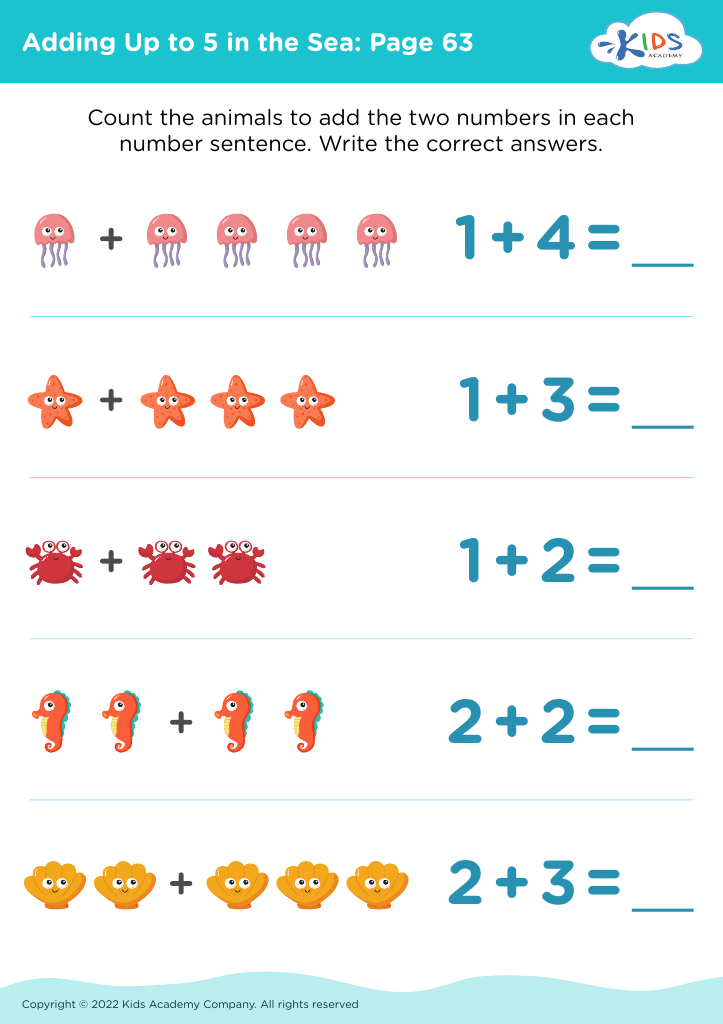

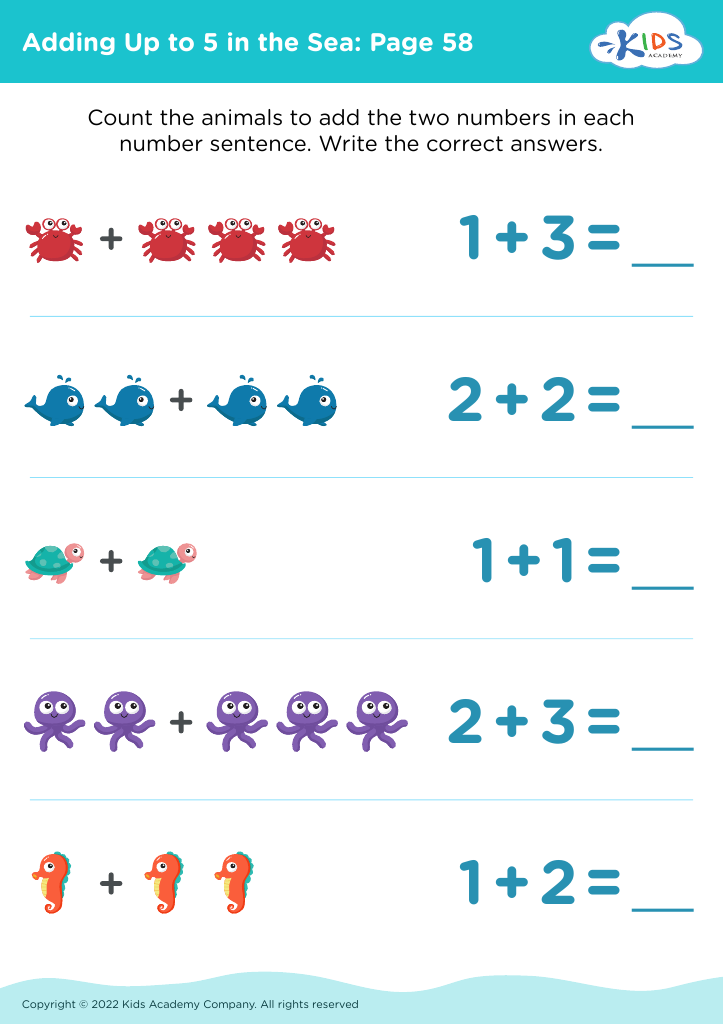
 Assign to My Students
Assign to My Students
